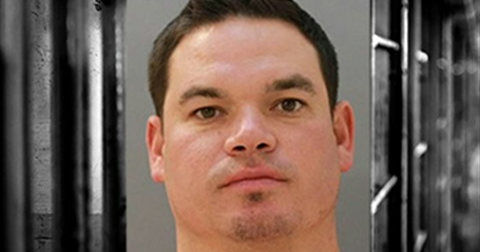NY Grand Jury Indicts A-Rod Doctor Galea
BUFFALO, New York (AP) — A high-profile Canadian sports doctor charged earlier this year with smuggling unapproved drugs into the United States to treat professional athletes was formally indicted Thursday by a federal grand jury in Buffalo.
The five-count indictment alleges that Dr. Anthony Galea, 51, of Toronto, smuggled human growth hormone and other unapproved substances into the U.S. and conspired and lied to border agents to avoid getting caught.
The charges, similar to those contained in a criminal complaint in May, set Galea on the path to trial.
The doctor, who is not authorized to work in the United States, is accused of treating 20 professional athletes at their homes, hotels and friends' houses from October 2007 to September 2009, including giving them free Viagra if they asked.
The indictment does not identify any athletes by name, but as the case moves toward trial, evidence and witness statements could be revealed in court, said U.S. Attorney William Hochul, whose office is prosecuting the case.
Tiger Woods, who has said he's been treated by Galea but did not receive performance-enhancing drugs, was among athletes contacted by investigators, the golfer's agent, Mark Steinberg, said in June.
The New York Mets' Jose Reyes and Carlos Beltran also have acknowledged talking to federal authorities about Galea, who has denied any wrongdoing. The New York Yankees' Alex Rodriguez told Major League Baseball officials in April that he didn't receive performance-enhancing drugs from Galea after the doctor told The Associated Press he had prescribed anti-inflammatories for him.
According to the indictment, the former doctor for the Canadian Football League's Toronto Argonauts made more than 100 trips to treat athletes in Cleveland, New York, Miami, Tampa, Orlando, Boston, Atlanta, San Diego, San Francisco, Denver, Phoenix, Hawaii and Washington, D.C., and billed them a total of more than $500,000.
The government alleges athletes would receive injections of HGH, banned by major sports, and Actovegin, a derivative of calf's blood not approved for use in the United States, as well as intravenous Actovegin drips and platelet-rich plasma therapy, a treatment used to speed healing that involves extracting blood from patients and re-injecting just the plasma.
"There is a reason why the public expects the (Food and Drug Administration) to determine which substances can be safely used in this country," Hochul said. "Misuse of certain substances can obviously be harmful, regardless of whether or not they are being administered by a medical professional."
Galea would tell an assistant who sometimes traveled with him to transfer drugs used to treat impotency into "non-descript pill bottles" to avoid detection at the border and would give them without a prescription to patients, according to the indictment. He also would have the assistant drop off extra drugs and supplies at a relative's house in New York City so he'd have them on hand, the indictment said.
The assistant, Mary Anne Catalano, pleaded guilty in June to a single count of lying to border agents as part of a deal that required her to cooperate in the investigation of Galea. It was her arrest last September while bringing medical equipment and drugs across the Peace Bridge into Buffalo that began the investigation of the doctor.
A phone message for Galea's Toronto attorney, Brian Greenspan, was not immediately returned Thursday. A person who answered the phone at the office of Galea's Buffalo attorney, Mark Mahoney, said Mahoney was out of town and unavailable for comment.
Although Hochul said in May that Galea treated athletes from Major League Baseball, the National Football League and Professional Golfers' Association, the indictment does not specify the patient-athletes' sports and Hochul declined to identify them.
The most serious charge in the indictment, smuggling, can carry a prison sentence of up to 20 years while three charges, conspiracy, lying to federal agents and unlawful possession with intent to distribute human growth hormone, are punishable by up to five years. The fifth charge, introducing misbranded drugs into interstate commerce, carries a potential three-year term.
A date for Galea's arraignment was not immediately scheduled.
Catalano, meanwhile, had been scheduled to be sentenced this week, but the government sought a delay until January so she could complete her obligation as a cooperating witness, Hochul said.
Copyright 2010 The Associated Press.







